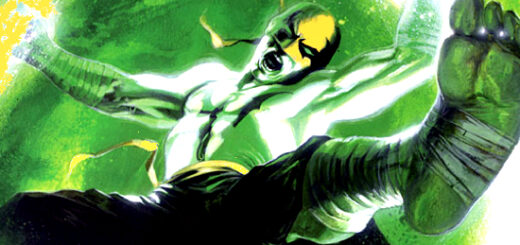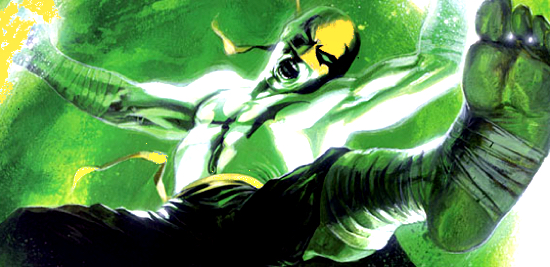Martha Thomases: Iron Fist and America’s Original Sin
If racism is America’s original sin, it’s not surprising that racial issues hold such a central place in our popular entertainments. It also affects our response to these entertainments.
Especially mine, and especially this weekend.
It started with a semi-binge of the Iron Fist, the new Marvel Television series on Netflix. All sorts of people were angry that the actor cast as the lead, Danny Rand, is white. While this is faithful to the source material, it would not have been blasphemous to cast an Asian-American actor. The character, as written in the television series, is not particularly white.
He is, however, really boring. I don’t know if this is the fault of the actor or the script. There are so many things that are not discussed that might fill in the characters’ inner lives. What does Rand Industries do? Do they make things? Do they just do real estate deals? Why does Danny run around like a crazy person instead of asking questions? How do they get from Gramercy Park to Chinatown so quickly? Did they chase each other through subway tunnels?
Maybe these details are filled out in later episodes. I expect to finish the series, although probably not until after I watch Dave Chappelle.
In other words, while I understand that race might be an issue for some viewers, it was not the most notable part of my experience.
I also finally saw Get Out, an amazingly brilliant movie. Race relations are absolutely the point of this movie. It offers a view of the world as experienced by African-Americans that I don’t get to see very often. It also offers a view of white people that I, a white person, rarely get to see. It’s funny and frightening and very important while never making me think I’m doing something that’s good for you. Broccoli should have such a good script.
Should we only have people of color as leads when the story is about their particular subgroup? I don’t think so. There are all sorts of stories that can be filled with people of any race, gender or ethnicity. For example, I love Jesse Martin on The Flash, and I am sure he was cast because he is Jesse Martin, not because they needed an African-American in the part. That said, the fact that he is black adds a definite je ne sais quoi to the series. So does his height. So does his goatee.
My ComicMix colleague Joe Corallo and I have spent hours arguing over these and related issues, usually consuming a good deal of tequila in the process. We have very different responses to the Aftershock series Alters. I really like it, and Joe likes it less than I do (although I think he’s coming around). I’m interested in the story the creative team is trying to tell, and Joe has less patience with the story than he does with the creative team. This is not an argument either one of us can win, because we like what we like and don’t like what we don’t like. Still, these are interesting reactions to have when a series is launched about a character who isn’t a straight cis white guy.
There are times when a character cannot be a straight cis white guy. There are times when a character must be a straight cis white guy. Most of the time, the only reason it matters to certain audiences are our cultural assumptions about which people are worthy of stories.












